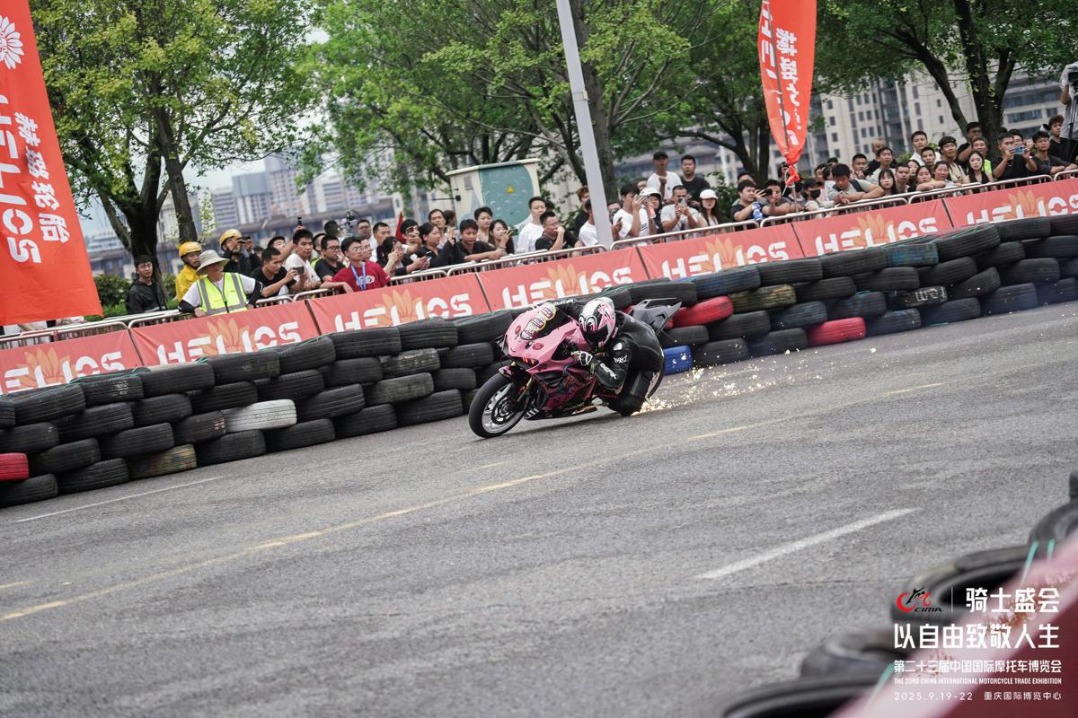CPC Guidelines for Governing Xinjiang in the New Era: Practice and Achievements
The State Council Information Office of the People's Republic of China September 2025

V. Uniting the Chinese Nation as One Community
Forging a stronger sense of the Chinese nation as one community is the focus of the CPC's work on ethnic affairs in the new era and the focus of all work in ethnic minority areas. Taking solid steps to heighten the sense of national identity, Xinjiang endeavors to improve commonality among its people of all ethnic groups, and guides them to unite as one through both rough times and the smooth towards a shared future, encouraging them to contribute to building China into a great country and creating a better life together.
Faster pace in building a cultural home shared by the Chinese nation. Xinjiang continues to promote mainstream opinions and increase the appeal of the Chinese culture and its power to unite people, consolidating the common ideological and political foundations for ethnic unity and progress. Under the guidance of the core socialist values, it has strengthened public education on the history of the CPC, the PRC, reform and opening up, the development of socialism, and the development of the Chinese nation, and carried out extensive educational campaigns, such as the one on "forging a stronger sense of the Chinese nation as one community to realize the Chinese Dream", to enhance cohesion and forge the nation's soul with shared ideals and convictions. Under an initiative for carrying forward revolutionary traditions and heritage, Xinjiang has built 471 education bases for patriotism at all levels, inspiring officials and the public to love the Party and dedicate themselves to the country by promoting the Desert Poplar Spirit and the XPCC Spirit.
Studying and exploring the inherent values and contemporary relevance of traditional Chinese culture, Xinjiang has established demonstration sites, where shared Chinese cultural symbols and the collective images of the Chinese nation are showcased; and it has organized regular trips to learn and experience traditional Chinese culture, thus further developing the advanced socialist culture and fostering a stronger sense of identity with the Chinese culture among all ethnic groups. To promote modern civilization, it has advanced campaigns to introduce modern values and encourage modern lifestyles with the help of specialized education centers. It has carried out extensive programs to popularize science and raise awareness of the law, to guide the people in adapting to life of modern civilization. Standard spoken and written Chinese is promoted across the region, and used and taught at schools. As a result, the public has developed a stronger awareness and capability to use standard Chinese, which has united hearts and minds for a shared future through a common tongue.
Increased interactions, exchanges and integration among all ethnic groups. Xinjiang coordinates urban and rural construction planning and the allocation of public service resources to advance all-round integration for the people of all ethnic groups physically, culturally, economically, socially, and psychologically, so that all are closely united like the seeds of a pomegranate. It has accelerated the development of people-centered new urbanization, introducing a more rational distribution of city clusters and small, medium and large cities, and building an ethnically integrated society and community. This approach makes full use of the mutually reinforcing effect between urban and industrial development, attracts populations with a flourishing industry, and makes it possible for all ethnic groups to live, study, work, and enjoy life side by side, as they contribute and share benefits together.
Further efforts have been made to carry forward the Foundation Project for young people and expand the patriotic education program that brings Xinjiang youth to other parts of the country on study trips. In 2024, 86,000 elementary and secondary school students traveled to other provinces and cities on such trips. Extensive "hand-in-hand" student activities have been organized between Xinjiang and provinces providing assistance to it, between schools run by the XPCC and regular schools, and between southern and northern Xinjiang. They are intended to create mixed-classes and mixed-dormitories that give students from different ethnic groups the opportunity to study, live, and grow together. Upholding the cultural core of tourism and promoting integration through tourism, Xinjiang strives to heighten the sense of the Chinese nation as one community throughout its high-quality development of the tourist industry. Tourism has become an important facilitator of interactions, exchanges and integration between ethnic groups. The region has also held activities to promote unity, increase understanding, and forge a stronger bond among the people of all ethnic groups.
Greater ethnic unity and progress. With a focus on unity, progress, and common prosperity and development among all ethnic groups, Xinjiang has implemented initiatives to safeguard and develop border areas and advance common prosperity among all ethnic groups. It has incorporated ethnic unity and progress into the regional legislative work and plans for economic and social development, and has promulgated and implemented the Regulations on the Establishment of Model Areas for Ethnic Unity and Progress, alongside the 14th Five-Year Plan for the Establishment of Model Areas for Ethnic Unity and Progress. Model units and individuals have been commended for contributing to ethnic unity and progress, with marked progress in strengthening and developing a new type of socialist ethnic relationship characterized by equality, unity, mutual assistance, and harmony. As of 2024, there were 101 national model areas and units, 14 national education bases, 1,555 model units and 2,690 exemplary individuals at the autonomous region level and above in Xinjiang, including the "People's Guardian" Bayika Kalidibek and the "People's Model" Burmahan Mawluda.
Steady progress in ensuring that religions in China conform to China's realities. Xinjiang is a region where religions have coexisted since ancient times. Buddhism, Taoism, Islam, Catholicism, and Christianity all flourish in the region. Xinjiang fully, accurately, and faithfully implements the Party's policy on freedom of religious belief by respecting people's religious beliefs, administering religious affairs in accordance with the law, allowing religious groups to manage their own affairs independently, and guiding religions to be compatible with socialist society. Following the principle that religions in China should conform to China's realities, the region has strengthened theoretical and political guidance for the religious circle, and has introduced the national flag, the Constitution, laws and regulations, the socialist core values, and fine traditional Chinese culture into venues for religious activities. Efforts have been made to inspire religious figures and believers to identify more closely with the motherland, the Chinese nation, the Chinese culture, the CPC, and socialism with Chinese characteristics.
The autonomous region government supports the religious circle in the study of scripture, and encourages interpretations of religious doctrines and precepts that align with contemporary development and with traditional Chinese culture, thereby enhancing religious people's Chinese cultural identity. To ensure the healthy development of religion in Xinjiang, the region has issued plans on training for religious figures to cultivate talent who are completely versed in both classical religious doctrines and traditional Chinese culture. It has strengthened governance on religious affairs in accordance with the law, and supports the religious circle in countering radicalization and guarding against the infiltration of religious extremism. It guides and supports the religious community to exercise full and strict self-governance, improve self-education, self-management and self-discipline, and lead its believers to contribute to building a great nation and realizing the rejuvenation of the Chinese nation.
































